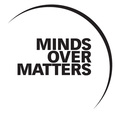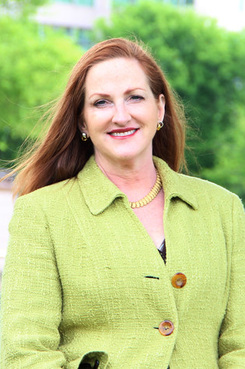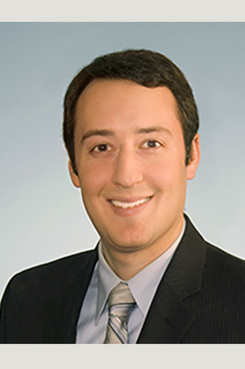Attorney Mental Health: 'Thanksgiving' Isn't Just a Holiday
The idea behind a gratitude practice is easy enough: It means taking time to think intentionally about positive events and people in your life.
November 21, 2019 at 02:15 PM
5 minute read
 (Photo: Subbotina Anna/Shutterstock)
(Photo: Subbotina Anna/Shutterstock)
 Lawyers are hardwired to notice the negative in every situation.
Lawyers are hardwired to notice the negative in every situation.
But then Thanksgiving comes around, with its tradition of reflecting on the year and expressing gratitude for the good things in life.
And experts ask: What if the Thanksgiving feeling lasted all year?
They say the season creates positive emotions and can increase connections to loved ones. It's a welcomed reprieve from the high-stress, adversarial profession that has created a lawyer population suffering from depression, anxiety and substance use disorders at rates higher than the general population.
"Lawyers, more so than others, need to be more intentional about cultivating positive emotions," said Anne Brafford, a former equity partner in Morgan, Lewis & Bockius, who's transformed herself into a positive psychology Ph.D. student and lawyer-wellness aficionado.
Gratitude Resources
- Discover potential benefits of starting a gratitude practice.
- Read about different forms of gratitude practices, and pick one to start.
- For journaling, search an online retailer for "gratitude journal" and order one.
- If you're more of an app person, try the Gratitude Journal by Happy Tapper.
- Find tips for gratitude journaling at Greater Good Magazine.
- Take a "gratitude quiz" to measure your baseline, and retake the test in three weeks to track your progress.
- For a deep dive, read "Gratitude Works!" by Robert A. Emmons, a preeminent researcher in the field.
The idea behind a gratitude practice is easy enough: It means taking time to think intentionally about people and positive events that create feelings of thankfulness. One of the well-known iterations of the practice is called, "Three Good Things," where attorneys keep a journal that explains the events that made them grateful and the reasons why. While some people practice gratitude every day, researchers have found the practice less effective when it becomes a chore.
Once per week is enough, as long as the lawyer keeps it up, according to Brafford.
As people create a habit of scanning their environments for good things, they grow a different interpretive lens that makes them better appreciate positive events, said Brafford, founding member of Aspire, a California-based educational and consulting firm for the legal profession. Because they often express their appreciation for other people, they form closer relationships, which help them in times of stress, she said.
Also, grateful people have less time to dwell on the negative. This helps combat a widespread phenomenon known as negativity bias, which means that people tend to notice and react more to negative events, according to Brafford. People need to experience three to five positive emotions for every one negative emotion, since the negative is so much more powerful, explained Brafford.
 Bree Buchanan. (Photo: Eric Quitugua/State Bar of Texas)
Bree Buchanan. (Photo: Eric Quitugua/State Bar of Texas)Bree Buchanan, senior adviser at Krill Strategies, a legal consulting firm that focuses on attorney well-being, said when she launched her gratitude practice she decided to add a layer of accountability to strengthen her commitment to the practice.
She and a friend joined as "gratitude buddies" and would spend about five or 10 minutes drafting short emails to each other, three times per week, to express something that made them grateful and explain why.
Other people keep up their gratitude practices by writing their thanks in a notebook, purchasing a "gratitude journal," or using an app on their smartphones.
After about three weeks, Buchanan noticed a change in her internal dialog. For example, during a long commute, rather than steaming about the bad traffic, she started dwelling on what she might express in her gratitude email when she arrived at work.
The item didn't have to be earth-shattering. For example, Buchanan works in Austin, where summer temperatures climb past 100 degrees. One day, she wrote that she was grateful she worked in air conditioning.
 Jonathan Beitner. (Courtesy photo)
Jonathan Beitner. (Courtesy photo)"It started to, in a subtle fashion, mold the way I look at my surroundings and how I spent my time thinking," she explained. "It helped with a lightening of my mood, and making it easier to interact with people. I was more pleasant. I was a little bit happier."
Attorney coach and wellness guru Jonathan Beitner of Chicago said he regularly talks with his attorney-clients about adding a gratitude practice as one component of their wellness routines. He even hands out a template worksheet at the end of his seminars on wellbeing.
"When you first start out, it's difficult to come up with your list of things you are grateful for," he noted.
But just as lifting weights becomes easier with more time at the gym, it also becomes easier to remember positive events as a gratitude practice matures.
"So much about the season and the holiday is about appreciating what you have, and being grateful for the friends, family and circumstances around you, and reflecting on the past year for what you are grateful for. It's essential: It's a part of the holiday," said Beitner, a former associate at Jenner & Block. "What if you took the theme, and feelings of goodwill and family and friendship that Thanksgiving engenders, and carry it forward in your personal lives a little bit?"
Read more – Minds Over Matters: An Examination of Mental Health in the Legal Profession
This content has been archived. It is available through our partners, LexisNexis® and Bloomberg Law.
To view this content, please continue to their sites.
Not a Lexis Subscriber?
Subscribe Now
Not a Bloomberg Law Subscriber?
Subscribe Now
NOT FOR REPRINT
© 2025 ALM Global, LLC, All Rights Reserved. Request academic re-use from www.copyright.com. All other uses, submit a request to [email protected]. For more information visit Asset & Logo Licensing.
You Might Like
View All
African Law Firm Under Investigation For AI-Generated Case References
3 minute read
Med Mal Defense Win Stands as State Appeals Court Rejects Arguments Over Blocked Cross-Examination

Indiana AG Accuses Big Pharma of Inflating EpiPens Price by 600%, Lawsuit Says
4 minute read
Ad Agency Legal Chief Scores $12M Golden Parachute in $13B Sale to Rival
3 minute readLaw Firms Mentioned
Trending Stories
- 1Departing Attorneys Sue Their Former Law Firm
- 2Pa. High Court: Concrete Proof Not Needed to Weigh Grounds for Preliminary Injunction Order
- 3'Something Else Is Coming': DOGE Established, but With Limited Scope
- 4Polsinelli Picks Up Corporate Health Care Partner From Greenberg Traurig in LA
- 5Kirkland Lands in Phila., but Rate Pressure May Limit the High-Flying Firm's Growth Prospects
Who Got The Work
J. Brugh Lower of Gibbons has entered an appearance for industrial equipment supplier Devco Corporation in a pending trademark infringement lawsuit. The suit, accusing the defendant of selling knock-off Graco products, was filed Dec. 18 in New Jersey District Court by Rivkin Radler on behalf of Graco Inc. and Graco Minnesota. The case, assigned to U.S. District Judge Zahid N. Quraishi, is 3:24-cv-11294, Graco Inc. et al v. Devco Corporation.
Who Got The Work
Rebecca Maller-Stein and Kent A. Yalowitz of Arnold & Porter Kaye Scholer have entered their appearances for Hanaco Venture Capital and its executives, Lior Prosor and David Frankel, in a pending securities lawsuit. The action, filed on Dec. 24 in New York Southern District Court by Zell, Aron & Co. on behalf of Goldeneye Advisors, accuses the defendants of negligently and fraudulently managing the plaintiff's $1 million investment. The case, assigned to U.S. District Judge Vernon S. Broderick, is 1:24-cv-09918, Goldeneye Advisors, LLC v. Hanaco Venture Capital, Ltd. et al.
Who Got The Work
Attorneys from A&O Shearman has stepped in as defense counsel for Toronto-Dominion Bank and other defendants in a pending securities class action. The suit, filed Dec. 11 in New York Southern District Court by Bleichmar Fonti & Auld, accuses the defendants of concealing the bank's 'pervasive' deficiencies in regards to its compliance with the Bank Secrecy Act and the quality of its anti-money laundering controls. The case, assigned to U.S. District Judge Arun Subramanian, is 1:24-cv-09445, Gonzalez v. The Toronto-Dominion Bank et al.
Who Got The Work
Crown Castle International, a Pennsylvania company providing shared communications infrastructure, has turned to Luke D. Wolf of Gordon Rees Scully Mansukhani to fend off a pending breach-of-contract lawsuit. The court action, filed Nov. 25 in Michigan Eastern District Court by Hooper Hathaway PC on behalf of The Town Residences LLC, accuses Crown Castle of failing to transfer approximately $30,000 in utility payments from T-Mobile in breach of a roof-top lease and assignment agreement. The case, assigned to U.S. District Judge Susan K. Declercq, is 2:24-cv-13131, The Town Residences LLC v. T-Mobile US, Inc. et al.
Who Got The Work
Wilfred P. Coronato and Daniel M. Schwartz of McCarter & English have stepped in as defense counsel to Electrolux Home Products Inc. in a pending product liability lawsuit. The court action, filed Nov. 26 in New York Eastern District Court by Poulos Lopiccolo PC and Nagel Rice LLP on behalf of David Stern, alleges that the defendant's refrigerators’ drawers and shelving repeatedly break and fall apart within months after purchase. The case, assigned to U.S. District Judge Joan M. Azrack, is 2:24-cv-08204, Stern v. Electrolux Home Products, Inc.
Featured Firms
Law Offices of Gary Martin Hays & Associates, P.C.
(470) 294-1674
Law Offices of Mark E. Salomone
(857) 444-6468
Smith & Hassler
(713) 739-1250








